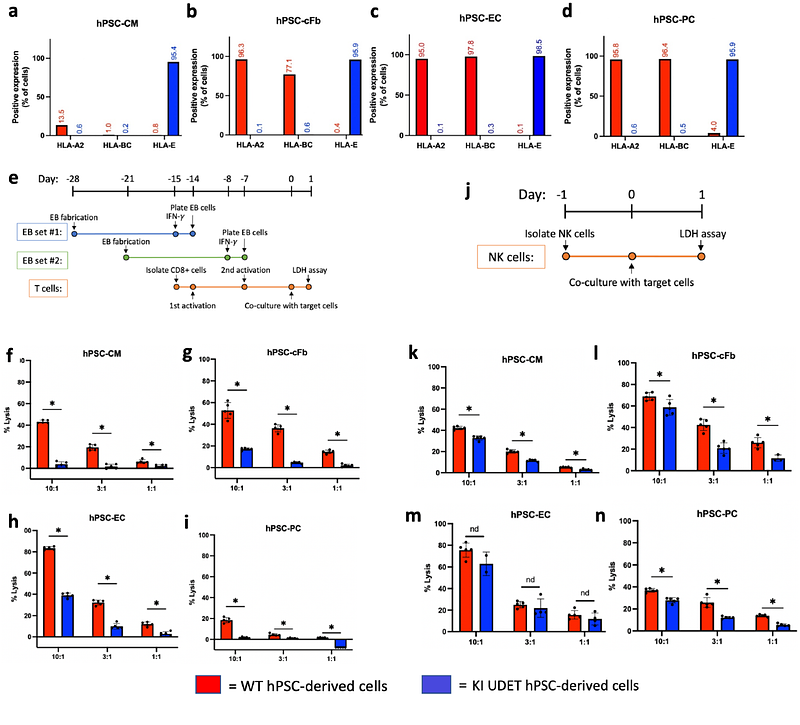Hypoimmunogenic hPSC-derived cardiac organoids for immune evasion and heart repair

Hypoimmunogenic hPSC-derived cardiac organoids for immune evasion and heart repair
Silver, S. E.; Howells, A. R.; Arhontoulis, D. C.; Randolph, L. N.; Hyams, N. A.; Barrs, R. W.; Li, M.; Kerr, C. M.; Robino, R. A.; Morningstar, J. E.; Bain, J. D.; Floy, M. E.; Norris, R. A.; Bao, X.; Ruddy, J. M.; Palecek, S. P.; Ferreira, L. M. R.; Lian, X. L.; Mei, Y.
AbstractHuman pluripotent stem cell (hPSC)-derived cardiac therapies hold great promise for heart regeneration but face major translational barriers due to allogeneic immune rejection. Here, we engineered hypoimmunogenic hPSCs using a two-step CRISPR-Cas9 strategy: (1) B2M knockout, eliminating HLA class I surface expression, and (2) knock-in of HLA-E or HLA-G trimer constructs in the AAVS1 safe harbor locus to confer robust immune evasion. Hypoimmunogenic hPSCs maintained pluripotency, efficiently differentiated into cardiac cell types that resisted both T and NK cell-mediated cytotoxicity in vitro, and self-assembled into engineered cardiac organoids. Comprehensive analyses of the hypoimmunogenic cells and organoids revealed preservation of transcriptomic, structural, and functional properties with minimal off-target effects from gene editing. In vivo, hypoimmunogenic cardiac organoids restored contractile function in infarcted rat hearts and demonstrated superior graft retention and immune evasion in humanized mice compared to wild-type counterparts. These findings establish the therapeutic potential of hypoimmunogenic hPSC-CMs in the cardiac organoid platform, laying the foundation for off-the- shelf cardiac cell therapies to treat cardiovascular disease, the leading cause of death worldwide.